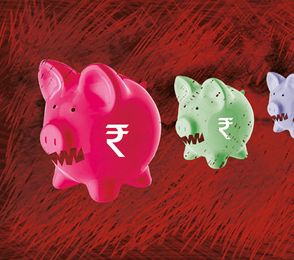There is a delightful short story by Jeffrey Archer, Clean Sweep Ignatius, which sums up the ethos of the Swiss banking industry. A whistle-clean new finance minister joins the Nigerian government and embarks on a much-publicised drive to end corruption, and, much like Arun Jaitley, to retrieve for his nation’s treasury the vast quantities of illegal money stashed away in foreign havens. He reaches unannounced in Geneva and proceeds, with an attaché case in his hand, to the office of the head of Switzerland’s biggest banking corporation. Once inside, he demands the bank account number of his predecessor. The president of the bank politely refuses citing confidentiality laws. The Nigerian insists. There is an ugly impasse. At this, the finance minister pulls out a pistol and, pressing it against the president’s temple, threatens to shoot if the account number is not revealed. The president breaks into a cold sweat but is unable to bring himself to revealing the number. At that, the finance minister puts his pistol back into his pocket and, flipping open the attaché case, says he was looking for a reliable banker!
That is the Switzerland (and hamshakal Liechtenstein) from whom Jaitley nurses his fraudulently obtained lists of Indian account holders. Fraudulent because they were obtained without authorisation and have to be authenticated before any action can be taken. To get the lists authenticated, India has had to resort to its Double Taxation Avoidance Agreements with France and Germany. The principal condition is that the lists will not be publicly revealed until India starts the process of prosecuting specified account holders for violation of Indian laws. Holding an account abroad is not in itself a crime under Indian law. Hence, the transgression has to be specified before a particular account can be publically identified.
There lies the rub. The UPA government had received the lists under DTAAs. Wrongdoing has to be asserted in a court of law by the finance ministry’s enforcement directorate and charges framed by the court for the name and number of the account holder to be revealed. This slow and demanding work was being patiently undertaken by the UPA government when Modi and his cohort unleashed their irresponsible election tirade, promising to put the lists in the public domain on the morrow of their election and within 100 days bring back home the money parked abroad―all of which was assumed to be “black”. That this claim was rubbish has now been proved, which is why Jaitley and Modi are hoist with their own petard and twisting slowly in the wind.
I have little sympathy for them. I am, however, concerned about India’s international standing and the future prospects of continuing to secure such information. Both are under threat. Under intense international pressure centred on the “war on terrorism” and the drug menace in developed countries, G20 has initiated a “global war against tax invasion”. The governments of the western tax havens have agreed within the framework of G20 to enter into a binding international agreement among themselves to reveal some information to each other, but under strict safeguards that will protect their legitimate banking interests. The agreement was concluded when the UPA was in power. All Jaitley needed to do was send a plenipotentiary to Berlin last week to sign the agreement. But Modi’s lot have botched it. The agreement has gone into effect without India’s signature. And, therefore, we are shut out of its benefits. Why?
Three things―on looking at the list, Jaitley, to his deep embarrassment, found that there was nothing in it to indict the Congress or its leaders. Second, he discovered that he could not release the lists at will. Third, when under Supreme Court orders he submitted the lists in a sealed envelope, some names started coming out. Worse, the most detailed recounting of the lists is in The Indian Express by a gossip writer whose husband is Jaitley’s best friend. No G20 government is ever again going to trust us. The enforcement directorate should investigate their own minister.
Aiyar, former Union minister, is an MP and a social commentator.


